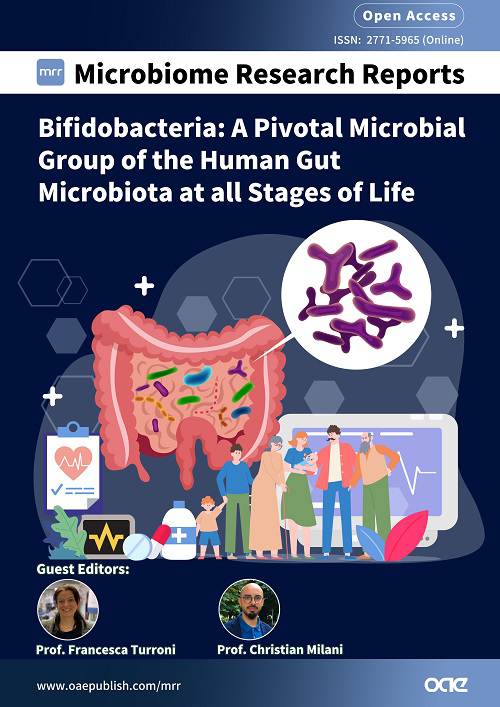
Topic: Bifidobacteria: A Pivotal Microbial Group of the Human Gut Microbiota at all Stages of Life
A Special Topic of Microbiome Research Reports
ISSN 2771-5965 (Online)
Submission deadline: 31 Mar 2023
Guest Editors
Prof. Francesca Turroni
Department of Chemistry, Life Sciences, and Environmental Sustainability, University of Parma, Parma, Italy.
Special Topic Introduction
In the last years, the exploration of the human gut microbiota since the first stages of life has attracted growing interest from the scientific community. Bifidobacteria are among the early microbial colonizers of the human gut, originating by a proven vertical transmission route from mother to newborn. Subsequently, colonization and establishment of bifidobacteria in the human large intestine are regulated by specific human milk ingredients following an intriguing process of microbe-host co-evolution. In this regard, it has been demonstrated that bifidobacteria are genetically adapted to survive and efficiently colonize the human gut due to their remarkable saccharolytic features as well as the production of many extracellular structures. Moreover, a rising number of investigations have shown the complex relationships of bifidobacteria with the human host, as well as with other microbes constituting the human gut microbiota. In this framework, the occurrence of members of the genus Bifidobacterium in the gut microbiota has been largely associated with positive health effects on the host across all stages of life. Remarkably, the ecological contribution of bifidobacteria as members of the human gut microbiota has been dissected in terms of shaping the gut microbiota and re-establishment the microbiota homeostasis through cross-feeding activities.
This Special Issue of Microbiome Research Reports will address relevant and recent information on this topic, so to generate a comprehensive and compiled overview of the biology of the genus Bifidobacterium and their interaction with the human gut microbiota.
This Special Issue of Microbiome Research Reports will address relevant and recent information on this topic, so to generate a comprehensive and compiled overview of the biology of the genus Bifidobacterium and their interaction with the human gut microbiota.
Submission Deadline
31 Mar 2023
Submission Information
Ten articles in the Special Issue are exempt from article processing charges.
For Author Instructions, please refer to https://www.oaepublish.com/mrr/author_instructions
For Online Submission, please login at https://www.oaecenter.com/login?JournalId=mrr&IssueId=mrr2303311191
Submission Deadline: 31 Mar 2023
Contacts: Fiona Yin, Managing Editor, [email protected]
Louise Xu, Assistant Editor, [email protected]










